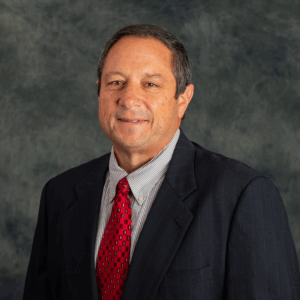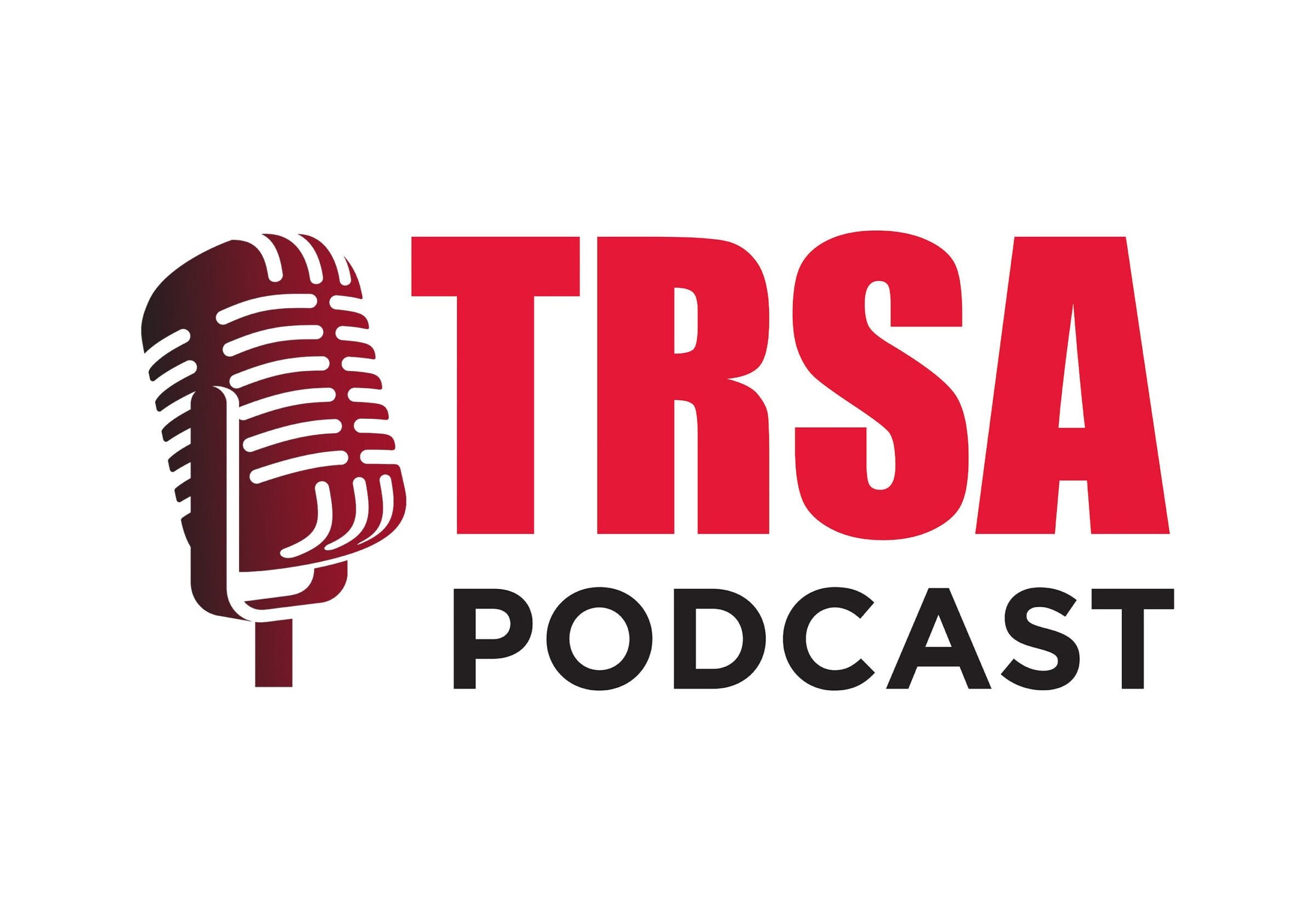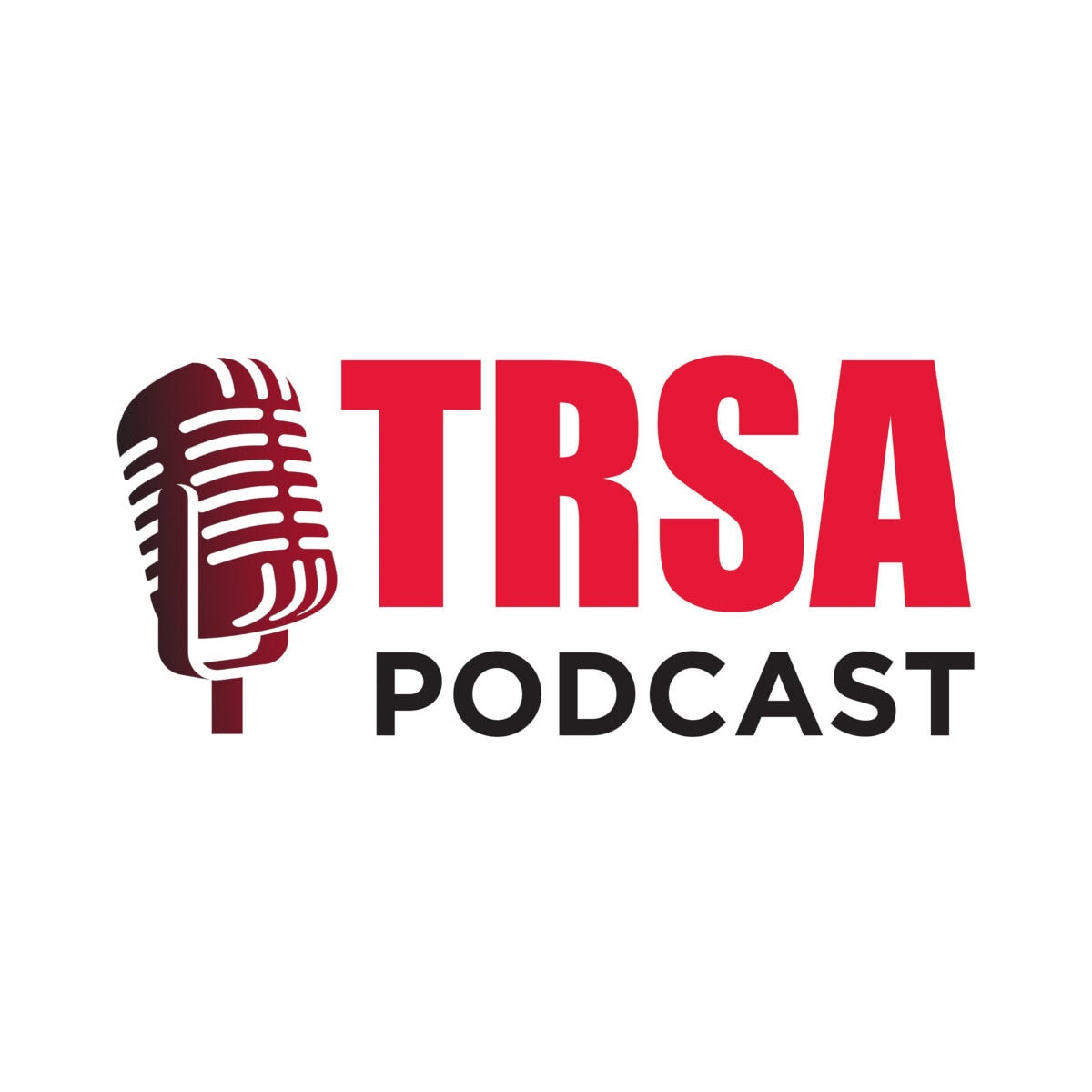 Fresh off a major legislative victory in Texas, TRSA’s Vice President of Government Relations Kevin Schwalb joins the podcast to discuss the economic benefits of reclassifying the industry under the “retail trade” category for tax purposes, the impact of the new law on TRSA members and the linen, uniform and facility services industry, and how TRSA’s advocacy efforts helped get Texas Senate Bill 2774 and House Bill 1769 signed into law by Texas Gov. Greg Abbott.
Fresh off a major legislative victory in Texas, TRSA’s Vice President of Government Relations Kevin Schwalb joins the podcast to discuss the economic benefits of reclassifying the industry under the “retail trade” category for tax purposes, the impact of the new law on TRSA members and the linen, uniform and facility services industry, and how TRSA’s advocacy efforts helped get Texas Senate Bill 2774 and House Bill 1769 signed into law by Texas Gov. Greg Abbott.
If you’re interested in getting involved in TRSA’s advocacy efforts, save the date for the 16th Annual Legislative Conference in Washington, DC, on Feb. 17-19, 2026. Visit www.trsa.org/legcon for more information.
View the inaugural video version of the podcast below!

Jason Risley: Thanks for joining me today, Kevin, on the Linen, Uniform and Facility Services Podcast. We’re recording live here at the TRSA office in Alexandria, Virginia, for the first time. We have a big win in Texas that we’re gonna talk about.
Kevin Schwalb: Yes, we do.
Jason Risley: Before we get into that, can you give a background of how you got started in the industry and an overview of what you do here at TRSA?
Kevin Schwalb: Oh, I’d be happy to, Jason. First of all, congratulations to you. 76 podcasts. You’ve been here since number one, and here we are doing our first video podcast. Good for you, man. Good for you.
Jason Risley: Thank you.
Kevin Schwalb: Well, a little bit about me for the people watching that I have not had the opportunity to meet and spend time with. I’m Kevin Schwalb. I’m the vice president of government relations here at TRSA, which pretty much means I’m the voice of TRSA when it comes to dealing with policy makers. Policy makers at the federal level, at the state level, sometimes at the city level, both from an elected perspective. So we deal with the senators and the elected house of representatives, as well as regulators, people at, say, the Department of Labor, Environmental Protection Agency. My job is to represent this great industry in front of all those policymakers that are going to have an impact on how our members do business every day. So that’s who I am. I’ve been with TRSA 14 and three quarters years. It’ll be 15 in October. Seems like it was just yesterday. It’s been a great opportunity for me. It’s been a great opportunity to get to know the industry, and I’ve met a lot of good people. So I’m excited about being here. I’m excited for another 15 years, and I’m excited for all the great things we’ve been able to do for the industry.
Jason Risley: We’re glad to have you on board, and for all that you’ve done on behalf of the industry. And, let’s get a bit more into the legislation in Texas. So what does the passage of Senate Bill 2774 and House Bill 1769 mean for the linen, uniform and facility services industry in Texas?
Kevin Schwalb: Well, there’s a couple of different meanings. At the most basic rate and in what the bills actually do is they reduce the tax rate that our industry has to pay in Texas. Texas has a, well, what’s called a franchise tax. And within that tax, there are two rates. There’s a wholesale rate and a retail rate. The wholesale rate is 0.75%. The retail rate is 0.375%. Up until this legislation, our industry was paying the wholesale rate of 0.75%. Now that this legislation has been passed, the industry will now start paying a rate of 0.375%, effectively cutting their tax liability through the retail tax in half. So, we’ve done quick math. And, actually, according to the state of Texas, not from the association, but according to the state of Texas, the industry will be saving roughly $3,000,000 annually. And while this is not a scientific formulation, if you look at the number of locations that TRSA has in its database, and that’s TRSA members and nonmembers as well, and you average the $3,000,000 out, we’re saving each location anywhere from $22 to $23,000 annually. So that’s the very basic part of what this legislation does. But there’s a bigger picture of what we’re trying to accomplish both at the federal level and in other states that it recognizes our industry as producers and manufacturers more than it does a service industry. And this is the first state to do that from a legislative perspective. And what that does is that helps us amplify our message when we’re working with other states and the federal government to look at us as more of a manufacturing slash producing industry than just a service industry. So there’s a smaller picture of the immediate tax rate decrease, but there’s a larger messaging picture about how the industry is looked at and identified.
Jason Risley: So there’s greater benefits besides just the economic benefits of the bill?
Kevin Schwalb: There are greater benefits besides just the economic, and that doesn’t even talk about what our industry can provide for the great state of Texas. I don’t know if you know this, but I am a Texan, Jason.
Jason Risley: I may have heard that!
Kevin Schwalb: I grew up in Abilene, Texas. Went to the Angelo State University. Go Rams. I’m sure everybody that’s listening knows where Angelo State is. But, what it does for Texans is it gives our industry the opportunity to expand their role by being able to hire more people and create more jobs. It’s also going to create a bigger opportunity for our industry to help more Texans that are first responders by providing protective equipment, protective clothing for them, and being able to expand the current reach due to those savings. So we’re increasing the job base in Texas. We’re increasing safety for first responders and other organizations that need PPE.
Jason Risley: TRSA and its members played a major role in advocating for this bill. Several TRSA members testified before committees in Texas. What strategies did you use to successfully influence lawmakers? Is there anything that you can take away from this approach moving forward?
Kevin Schwalb: Oh, definitely. You know, all politics is local, and all politicians want to hear from their members. And this legislative victory is a perfect example of what I like to call “shoe leather lobbying.” Almost every industry has an association lobbyist such as me. You know, all industries have somebody like me, and my job is to know the process of how to work to engage policymakers and maneuver policy to where there’s either not a bad impact on the industry or how it can benefit the industry. But at the end of the day, policymakers, especially elected policymakers, want to hear from their constituents. Back in March, we held a Texas Legislative Day to help support our legislation. And at that point in time, we only had a House bill. We had Rep. Drew Darby from San Angelo, who had introduced HB 1769 on our behalf, and this is the third time that he’s introduced it on our behalf. And the reason he did that is because he knew the UniFirst rep. UniFirst has a location in San Angelo, and Drew knew the UniFirst rep and knew the company. He introduced legislation on behalf of a constituent of his. So we had the Legislative Day where we had 30, 35 TRSA members come to or go to Austin and visit their legislators. I’d like to give a shout out. I mean, we had a lot of active members. You know? You mentioned the testimony. We had Terry Garcia from Division Laundry. She came to the Texas Legislative Day. She also testified in front of the House Ways and Means Committee. And then we had Roger Harris from Metro Linen. He came and testified in front of the Senate committee that was hearing this bill. So they were active in both the Legislative Day and spending extra time coming to or going to Austin to testify. We had about 17 members of the UniFirst staff come to our Legislative Day, and they went to Capitol Hill. And like I said, at that point, we only had a House bill that was introduced. Something that was very important to our strategy was to get a Senate bill introduced. We had over 70 meetings with legislators on that day. There were two UniFirst employees that met with a gentleman, a state Sen. Adam Hinojosa, who’s down in the Corpus Christi area, and because of that meeting and because they did a fantastic job explaining the industry and the importance of this initiative, he ended up being our chief sponsor in the state Senate. And if it wasn’t for us being able to run a state Senate bill congruent with a House bill, I’m not real sure that we’d be celebrating this victory. But because of that “shoe leather lobbying” that I mentioned and having members go to Austin and visit with their legislators, you know, that really helped strengthen our position. I don’t want to take away from all the other organizations. We had several different companies come and attend, and every meeting that they had was important. We had one supplier partner I was proud of, the Tingue company had two of their their staff down that helped to support our operators. It’s that type of “shoe leather lobbying” that helped push this past the finish line. And that’s what we’re gonna have to do in other things. Policy rarely gets made unless there is a form of grassroots effort, unless there is somebody from a member’s district pushing an issue, it very rarely goes to the top. And not only was this Texas Legislative Day, I also need to recognize all the work that our industry did, whether they attended the Legislative Day or not, that our industry did contacting their legislators when we had votes coming. There were several legislative alerts that we had sent out where we had members in their offices calling their elected representatives and their state senators and their state representatives to get this bill to pass. So it was being “boots on the ground” in Austin. It was visiting members in Austin. It was making phone calls to members when they’re in their office when it was voting. So it was an all-out effort on behalf of the entire industry that was able to get this past the finish line.
Jason Risley: Sounds like it was truly a collective effort.
Kevin Schwalb: It was. And I was really proud to be in the industry and to be working with the folks that I did. We had a lot of general managers that were in Austin on Hill Day that were a lot of fun to be around. And they’re better lobbyists than I ever hoped to be. They were fantastic. It was great.
Jason Risley: They help make your job easy, I guess.
Kevin Schwalb: They do. They do, and, you know, it’s a cautionary tale moving forward. You know, if there’s other issues that we have working at the federal level like, our issue with increasing the amount of reusable health care textiles, the one way that we can emphasize the importance of this and help make the path easier of some sort of activity is to have the local members contact their legislators. Many hands make for lighter work, and, you know, it really does make a difference.
Jason Risley: And speaking of the workforce, with more than 20,000 Texans employed in the linen, uniform and facility services industry, how might this bill affect job creation, workforce development and then service expansion across the state?
Kevin Schwalb: Thank you for bringing that up. I know I touched on it a little while ago, but, you know, having this money freed up on a reduced tax rate is gonna allow companies to acquire other locations. I know that there’s one specific company that without this tax break they were looking at options of expanding and adding a plant, but they weren’t sure they were going to be able to. But this break is going to give them the ability to add a whole plant to another place of Texas that doesn’t have a plant and hiring Texans. So it gives needed capital to our industry to be able to expand either their current facilities to be able to increase production or build new facilities where they can bring in new workers, new tech you know, bring in Texans to new jobs, creating a larger workforce. So having access to that kind of capital is really important.
Jason Risley: Do you think that this success in Texas could inspire similar legislative efforts in other states?
Kevin Schwalb: I think it does. You know, we are currently involved or this year, in 2025, we’ve been involved in seven states from a legislative perspective. Texas is the first outright victory where we have had legislation passed in both chambers and signed by the governor. We have other pieces of legislation that are in other house bodies. And in Wisconsin, we’ve had two pieces of legislation that’s going to recognize our industry as manufacturers under what Wisconsin calls the manufacturing and agriculture tax credit. Once other policymakers see that our industry is being looked at as manufacturers or producers, it makes it easier for them to move forward and recognize the industry in the same way. So we’re hoping that this momentum from Texas will carry up to Wisconsin from a tax perspective. We’re looking at the, again, the increase of reusable health care textiles and health care facilities. We’re hoping that other states see the activity that our members in Texas took part of, and it empowers them to want to get out and be motivated to work with their policy makers so we can help them increase their production, and increase the amount of reusable health care textiles so they can increase production. So we’re hoping that Texas is a model that other states will follow from a policy maker perspective and that members of other states also can see the benefits of what we’re doing.
Jason Risley: You just mentioned several other states and even at the federal level that we’re involved in legislative efforts. Do you see any challenges or opportunities in replicating this model?
Kevin Schwalb: They’re challenges because not all states have the same political makeup as Texas does. In Wisconsin, we’re looking at a divided government. We have a Republican controlled state assembly, a Republican controlled state Senate, and a Democrat governor who has some philosophical concerns with the tax credit that I discussed a little while ago. So it’s a different method of communication. Because of the victory in taxes, it doesn’t necessarily pave the way all the way in Wisconsin, but it gives us a model. And in other states, again, we’re working in New York and in California, where, you know, the political makeup of those two state legislatures, a democratic majority in both the assembly and the state Senate with a Democratic governor a Democratic administrator. It’s just different messaging, and it’s also picking and choosing your battles and knowing how to communicate the initiative to the right people.
Jason Risley: In closing, is there anything else that you’d like to share about this Texas legislation with our audience?
Kevin Schwalb: This initiative in Texas is a perfect example of why you need to be more involved in politics if you want to stay in business. There’s a saying that says get into politics or get out of business. This Texas model shows the importance of getting into politics slash policy because without the efforts of our members in Texas, the Texans talking to their state representatives and their state senators, without their efforts, we wouldn’t have been able to accomplish this goal. I hope that it just empowers TRSA members to get more involved in the legislative and the policy process.
Jason Risley: Kevin, thanks again for joining me today, and we look forward to talking to you more in the future.
Kevin Schwalb: Well, this is fantastic. I appreciate the opportunity, Jason.
Publish Date
June 30, 2025
Runtime
17 min
Categories
Sign Up For Our Newsletter
Receive the latest updates on the linen, uniform and facility services industry from TRSA delivered straight to your inbox.









